Raising a puppy is a big deal. Especially if that puppy is in the critical socialization period between 3 days and 16 weeks. The specific time line for this period is debated, but everyone seems to agree that the more expansive the socialization, the more likely the dog will be able to handle a variety of situations.
Puppies in this critical socialization period aren’t fully vaccinated and yet they need to be exposed to the world. They need to experience different sights, sounds, textures, people, animals, and so much more while this window is wide open; and yet they can’t actually be a part of that world.
A short Google search of “parvo” can have new puppy owners terrified that anywhere they go, anywhere their other dogs go, and anywhere the puppy goes it might get sick. These are not unreasonable fears. Canine Parvovirus, Canine Distemper, and many other viruses can be fatal or cause long term issues for unvacinnated puppies.
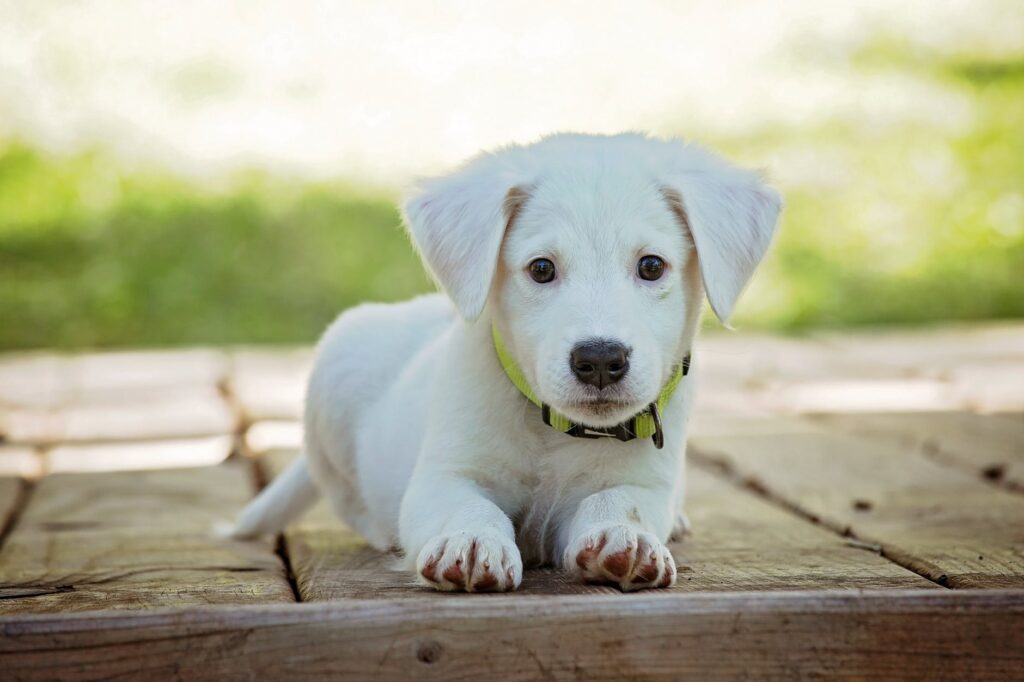
I have a new puppy myself and I wanted to write this blog in order to help other owners create the best dog they can. For puppies become dogs; a fact people seem to forget due to cuteness.
A lot of people who get puppies don’t realize how many things puppies should experience and the internet can be very misleading. Puppies need to be doing and experiencing new things every day.
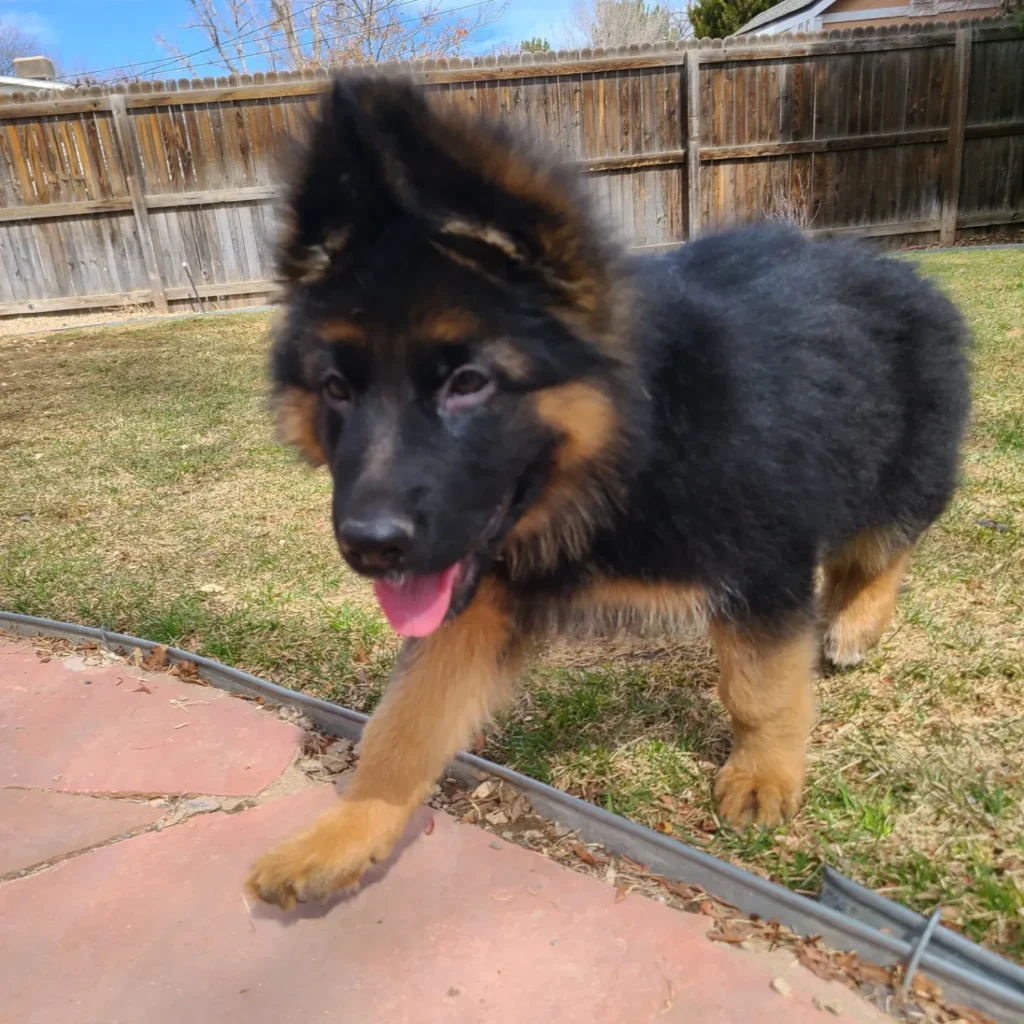
First, socializing your puppy does not mean forcing them to interact with everyone. They do not need to be held by your friends and family, carted around by your kids, or be fawned over by strangers in the local hardware store.
Yes, your puppy should learn to be handled. By you, by the vet, and by people you trust. Forcing your puppy to be physically handled by a million strangers is asking for trouble. Depending on the temperament of the puppy they’ll either learn to seek attention from everyone or learn that people are rude and not to be trusted.
A happy medium that I suggest to clients with puppies is to handle your puppy a lot yourself, have your vet handle your puppy, and invite people over. If your puppy wants to interact, invite these people to touch your puppies paws, play with their collar, and pet them gently.
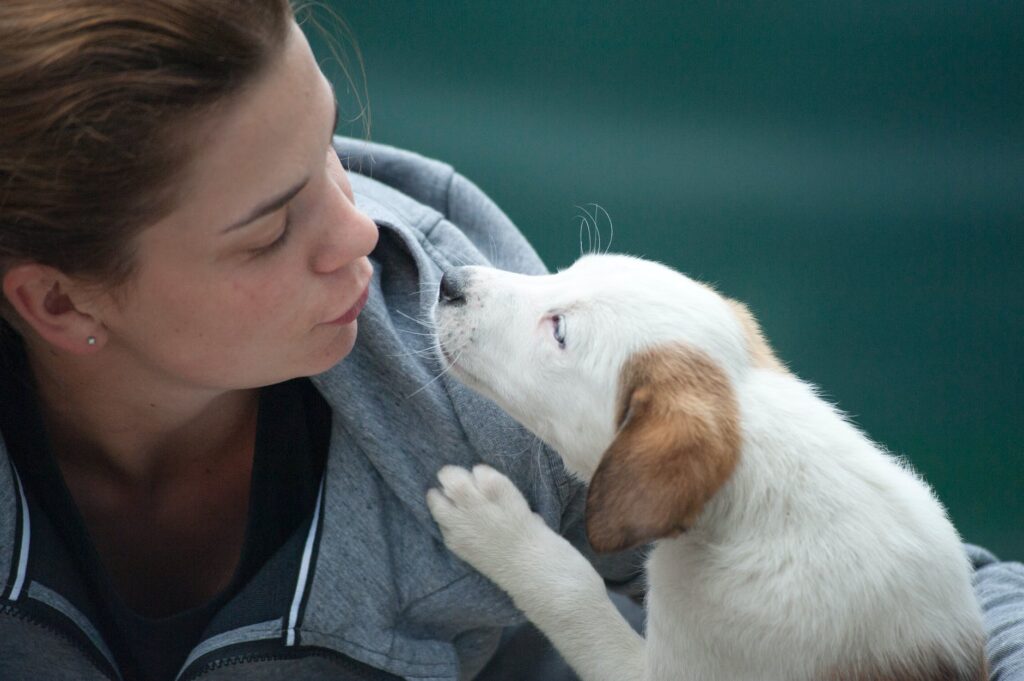
Second and jumping off the first; touch your puppy’s collar. Manipulate your puppy using gentle collar pressure. Even if you have opted for a harness, teach your puppy to tolerate having a collar and slip leash on.
Here’s my reasoning: if your puppy gets loose, people are most likely to try and grab the collar, put a slip lead on them, or both. Also, most vets use slip leads, and groomers use a groomers loop much like a slip lead.
When first starting off with puppies, I walk them on a slip leash in order to get them used to the gentle pressure they will experience at some point in their lives. I’d rather they learn in a safe environment with me, than go to the vet or the groomer and cause themselves or someone else harm by alligator rolling or freaking out and biting.
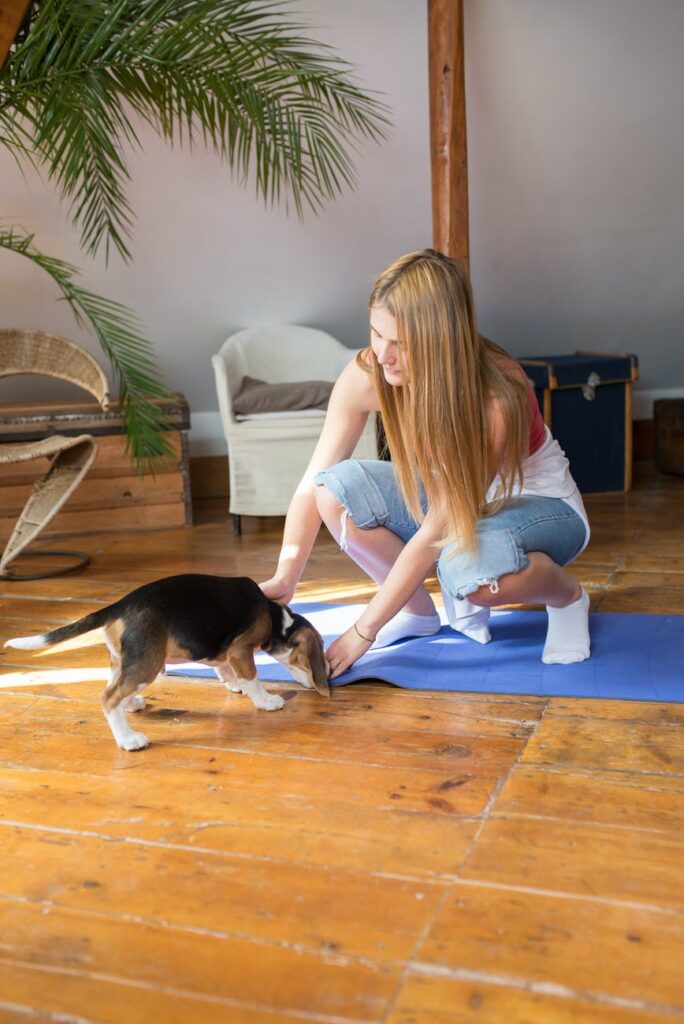
Third, get your puppy on as many surfaces as possible. Grass, tile, hardwood, carpet, concrete, ect. If you don’t have it, find someone who does and ask to bring your puppy over for a short time.
I see it all the time, a dog who has never experienced a slick floor and panics at 2 years old when their owners move to a house with tile and then plays hop-scotch on rugs while living in a constant state of fear.
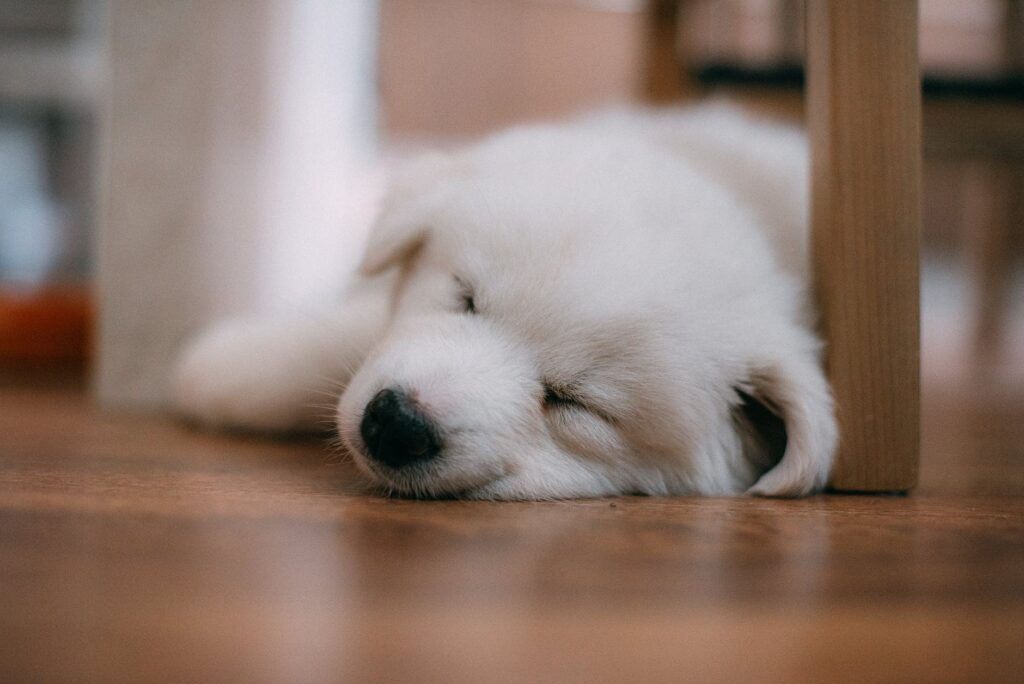
Fourth, get your puppy used to all kinds of noises. Fireworks, thunder, live music, keys, ect.
I am a clutz by nature, so my puppies get accustomed to me dropping things very quickly. I also drop things on purpose while they’re eating or during training so their minds are focused on other things. I also make a point to plan play sessions during thunderstorms, fireworks, and heavy rain.
Start with the noise far away, feed your puppy their kibble, and watch your puppies reaction. If they don’t react, don’t make a big deal of it and get a little closer. Most young puppies are not super afraid of storms, fireworks, or loud noises yet and with the proper introduction to them they’ll learn to ignore them all together.
If your puppy is easily startled you’ll have to go very slow.
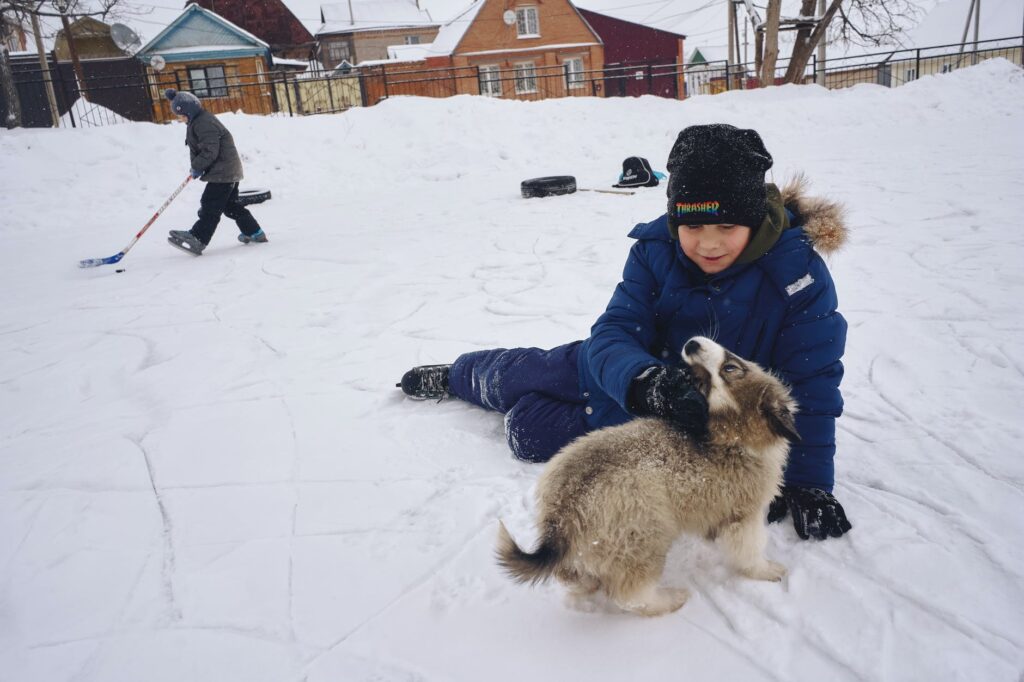
Lastly, here is a list of do nots.
- Do not take your puppy to the dog park.
- Do not take your puppy to daycare.
- Both of these can be done later in life if you want but please wait at least a year.
- Do not let children play rough, ride, or step on the puppy.
- Do not force strangers on your puppy.
Puppies are always learning. If you leave them to their own devices, they’ll learn things you don’t want them to and if you don’t expose them to things early, they won’t know how to react to them in the future.
I love raising puppies but it’s a ton of work. Hopefully this can help you create the best dog you can.